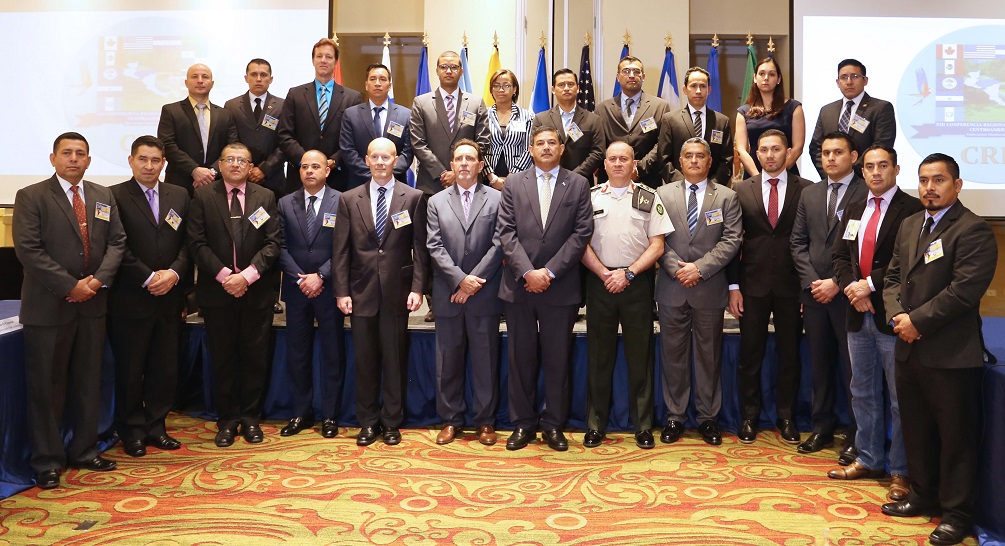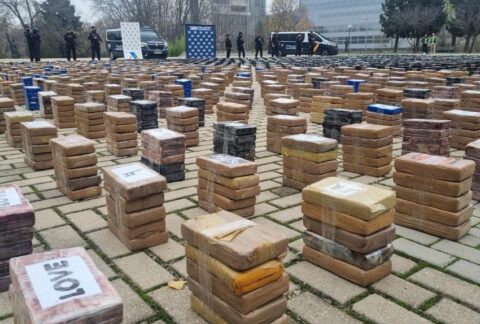Belize, Colombia, Costa Rica, the Dominican Republic, El Salvador, Guatemala, Honduras, Mexico, Panama, and the United States agreed to synchronize their intelligence services and cooperate in security operations against common threats, such as narcotrafficking and organized crime.
The agreement was signed at the U.S. Southern Command- (SOUTHCOM) sponsored XII Central American Regional Intelligence Conference (CRIC, in Spanish), organized by the Honduran Armed Forces on July 16-18 in Tegucigalpa. CRIC is a forum designed to develop security strategies.
“The agreement enables the creation of a swift system of classified information that will serve as a basis for strategic and tactical operations in the region,” Army Brigadier General Germán Antonio Alfaro Escalante, head of the Honduran Armed Forces’ C-2 Strategic Information, told Diálogo. “This measure will strengthen effective communication to foresee the operations of transnational organized crime in the region.”
To optimize the armed forces’ work and that of security and justice mechanisms, experts agreed to develop communication platforms to identify groups and criminal leaders and to share critical information in real time throughout the year. They also outlined the main lines of action regarding security: the fight against transnational criminal organizations (TCOs), unifying their efforts and doctrines, combined operations, and training and instruction.
Data from the Inter-American Development Bank shows that criminal organizations threaten the security and prosperity of the Western Hemisphere at a cost of about 3.5 percent of the regional Gross Domestic Product. The report Central America 2030 from Florida International University and Global Americans, says that TCOs are a threat that transcends borders in the Central American region. According to the report, 90 percent of the cocaine in the U.S. market now flows through Guatemala and Honduras.
“While hundreds of gangs involved in organized crime in general operate in the Northern Triangle countries [Guatemala, Honduras, and El Salvador], in Panama there are companies that have become a base for money laundering and product trafficking,” says an article from the Mexican newspaper El Financiero. The news agency BBC Mundo also reports that security and stability in Costa Rica have worsened in recent years. Moreover, the Washington-based organization InSight Crime says on its website that Central American gangs and narcotrafficking groups are gaining ground in Belize.
“Narcotrafficking boosts crime, extortion, and maras and gangs by 80 percent” General (ret.) Fredy Santiago Díaz Zelaya, Honduran minister of defense, said at CRIC. “Only as a united front will we be able to develop strategies to combat associated groups that cause so much harm to the country and the region.”

“To confront these powerful, violent organizations, governments should reevaluate and reorganize their security forces to better confront criminals,” say Elcano Royal Institute and the Peruvian Army’s Center for Strategic Studies in the report The Transformation of Latin American Armed Forces in the Face of Organized Crime.
“For quite a while, the United States has developed appropriate strategies to respond to TCOs, and terrorist organizations are increasingly dependent on criminal groups to obtain financial and logistics support,” the report says.
“SOUTHCOM’s efforts are very valuable, as it is a high-level coordination entity that makes joint doctrine operational,” said Brig. Gen. Alfaro. “The scenario isn’t easy. Combined work can confront the multi-headed monster that has spread its criminal networks in different institutions,” Army Brigadier General René Orlando Ponce Fonseca, head of the Honduran Armed Forces Joint Chiefs of Staff, said at CRIC.
Honduran efforts to curb criminal activities are important; the results are evident in operations conducted against those involved in illegal activities in recent years. But these actions “are not enough [at the regional level] yet, because TCOs are a threat against political, economic, social, and diplomatic factors,” Brig. Gen. Alfaro concluded.









